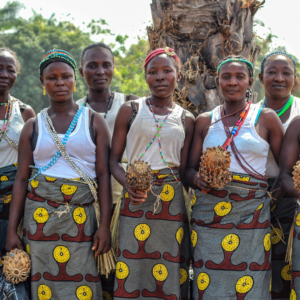Florence Ntisai spent much of her life marginalized in Samburu County, Kenya, silenced by stigma and excluded from decisions shaping her future due to her congenital condition, phocomelia. Growing up in an environment where women with disabilities were often hidden from public life, she lacked the confidence to speak up or participate in community affairs. Today, Florence has emerged as a climate advocate, leading an organization that empowers women with disabilities to take an active role in climate governance.
Her transformation began in 2024 when she joined the STREVOW initiative—Strengthening the Voices of Women with Disabilities to Actively Participate in Climate Change Policy and Negotiations—funded by the Africa Climate Change Fund (ACCF). STREVOW operates across 12 East African countries and Small Island Developing States, aiming to shift women with disabilities from overlooked victims to recognized actors in climate action. The program provides training in climate policy, advocacy, public speaking, leadership development, and peer mentorship, equipping participants with the tools and confidence to engage in decision-making processes.
Building on the skills and networks gained through STREVOW, Florence founded the Kimunyak Differently Abled Initiative (KDAI), a community-based organization in Samburu that promotes inclusive climate action and sustainable livelihoods. KDAI has supported 53 women with disabilities, including adolescents, young mothers, and caregivers, helping them engage in local climate dialogues and advocate for policies that reflect their unique needs. Florence’s journey mirrors that of other participants, such as Halima Shariff, who also gained the capacity and confidence to participate in climate negotiations and policy advocacy.
Early evaluations of STREVOW in April 2025 highlighted its impact in strengthening participants’ understanding of gender and disability issues in climate policy, enhancing their ability to influence decision-making, and fostering inclusion in regional and international climate forums. The initiative has established a regional platform to ensure women with disabilities are represented in governance structures and has enabled participation in United Nations-led global climate negotiations, marking significant progress in breaking long-standing barriers.
Rita Effah, Senior Climate Finance Officer at the African Development Bank and ACCF Coordinator, emphasized the importance of integrating women with disabilities into climate decision-making. She noted that persons with disabilities are among the most vulnerable to climate change and extreme weather events, yet their perspectives are often absent from policy discussions. STREVOW addresses this gap, ensuring that these vital voices contribute meaningfully to shaping climate solutions across East Africa.







